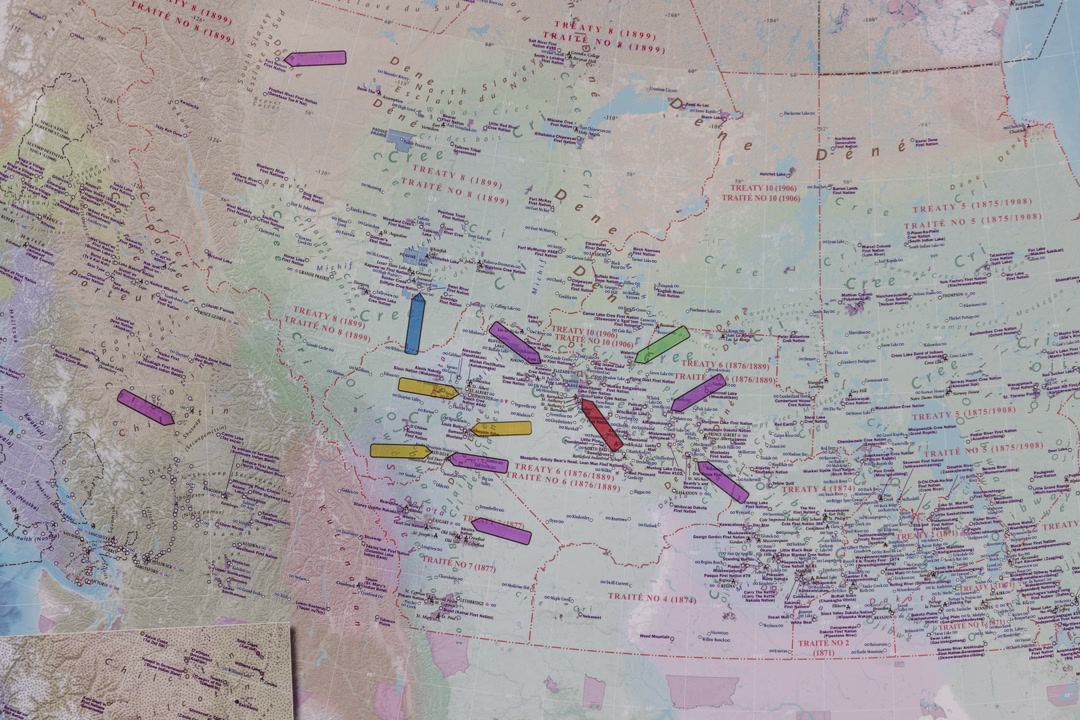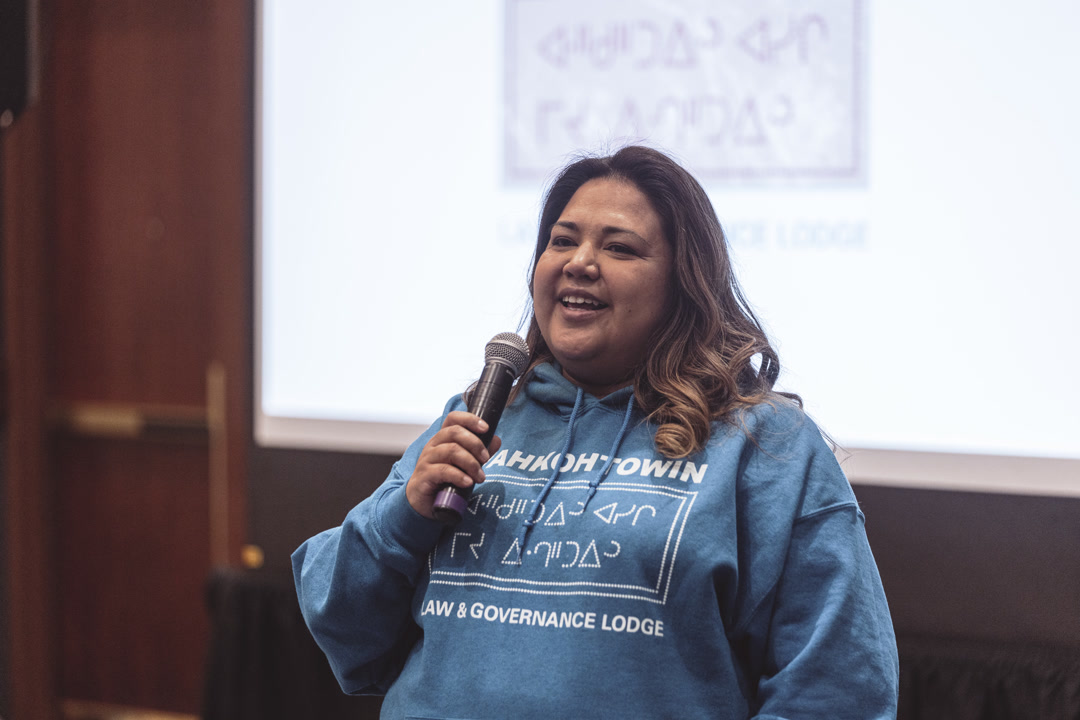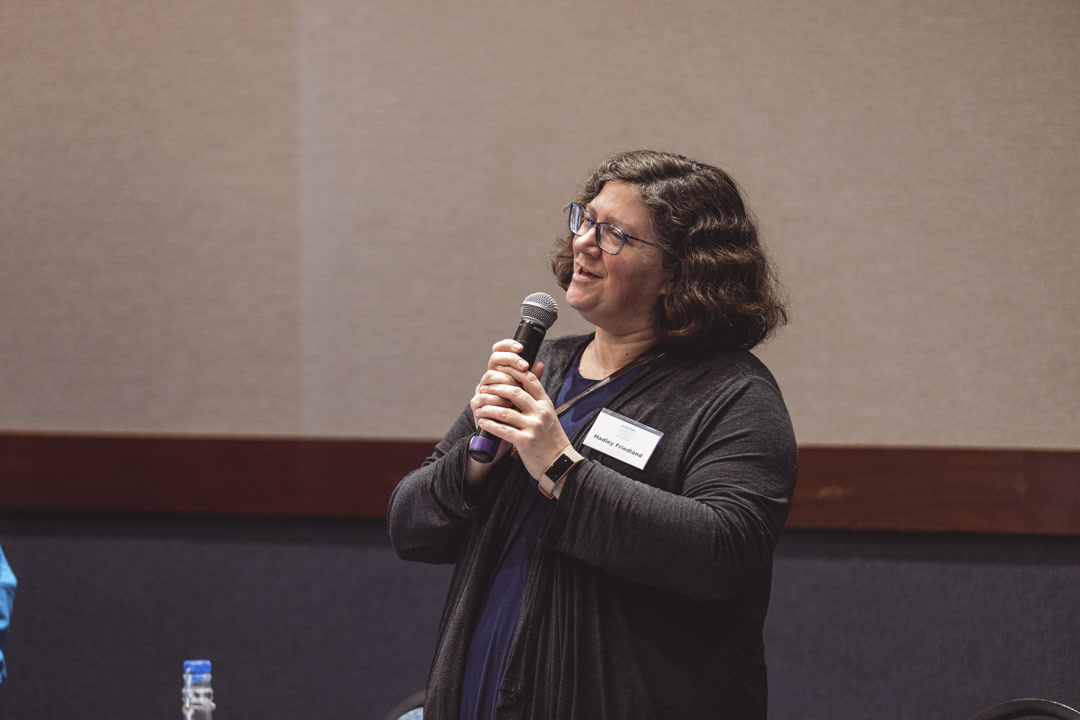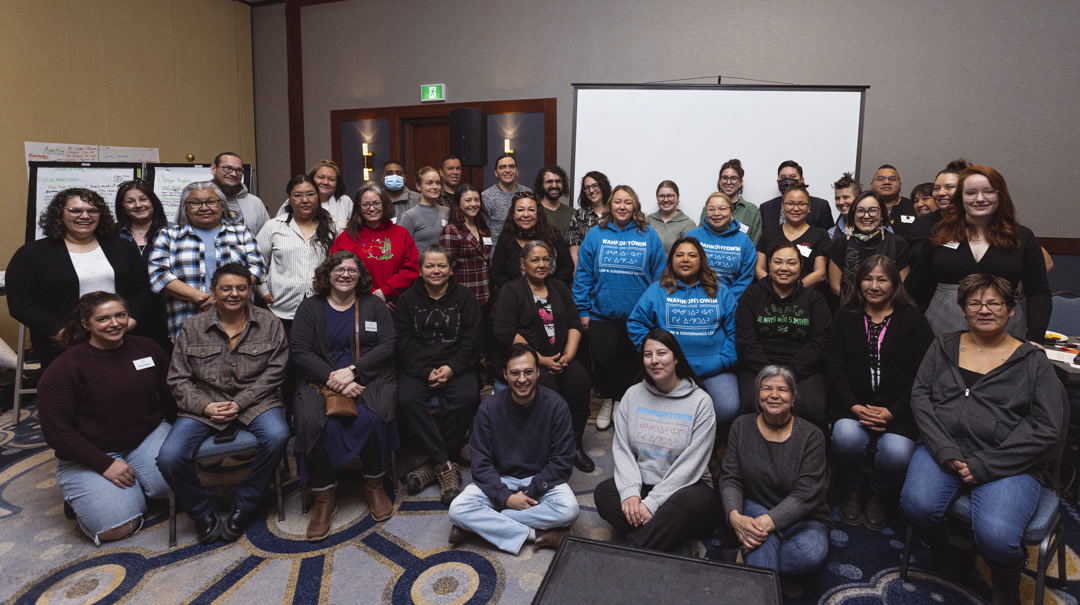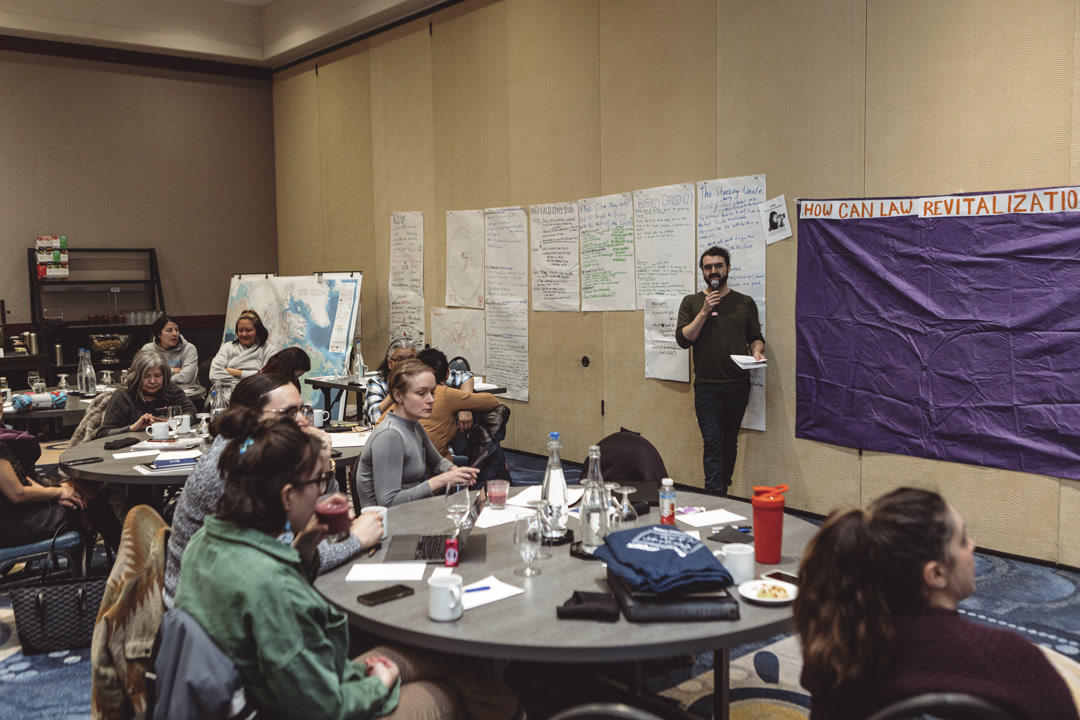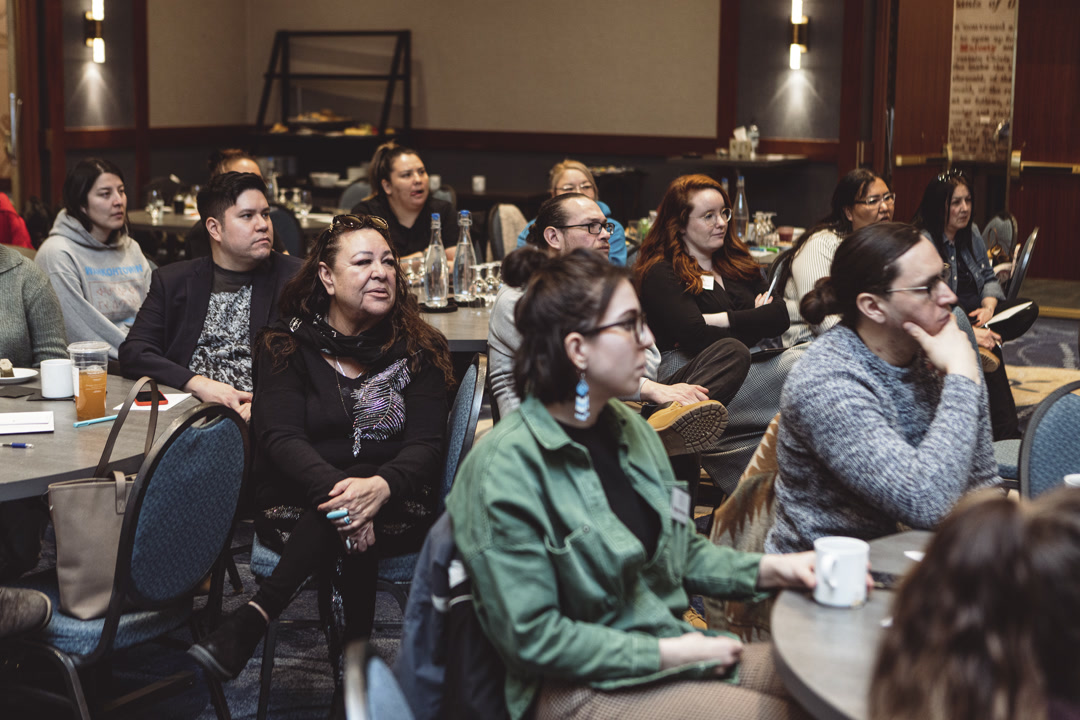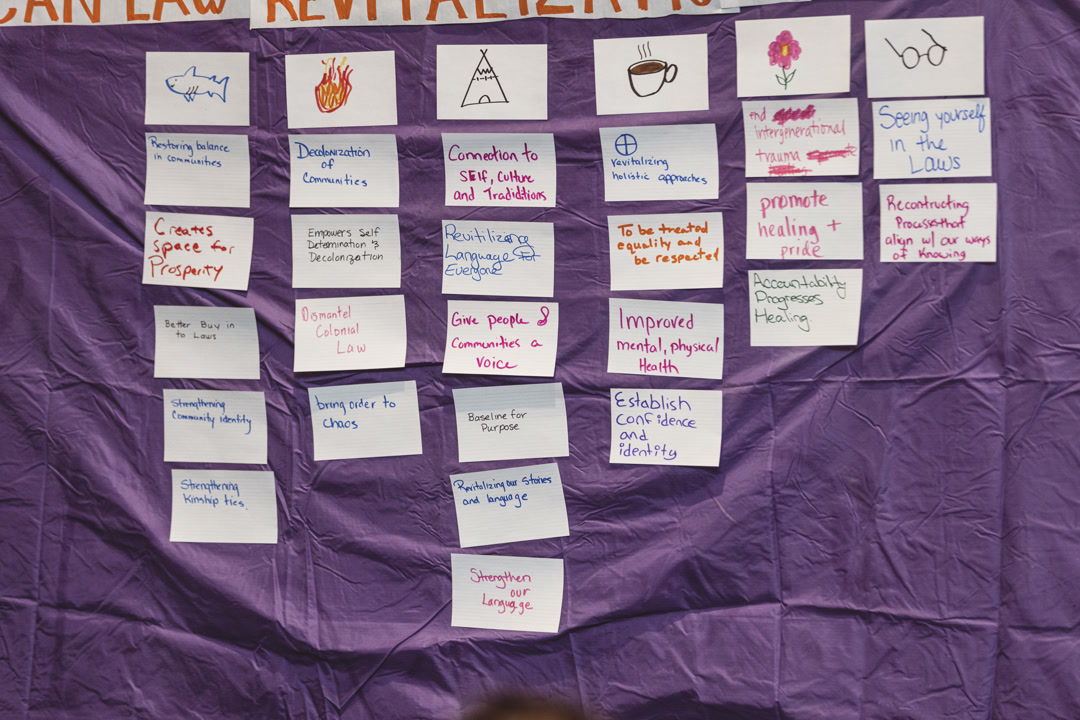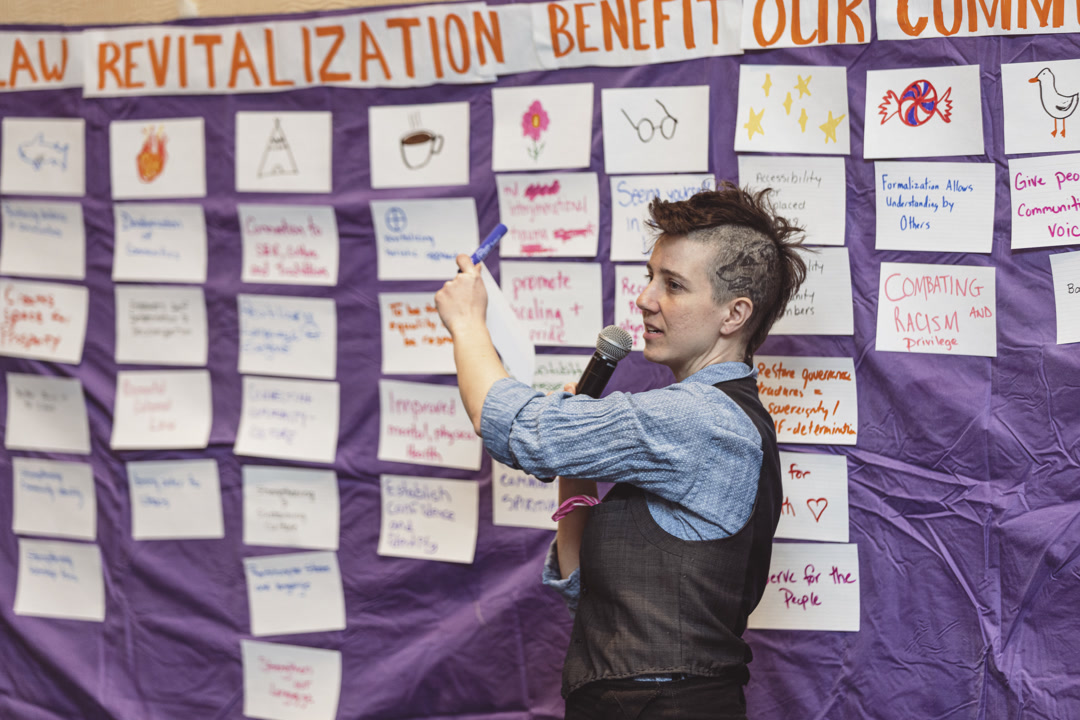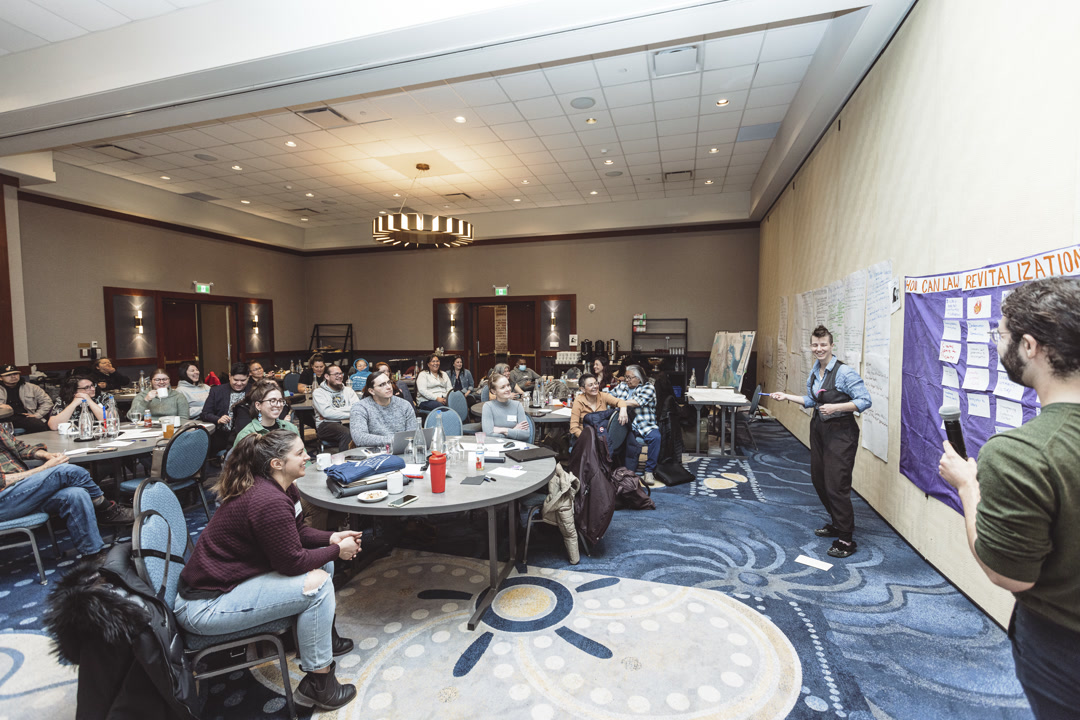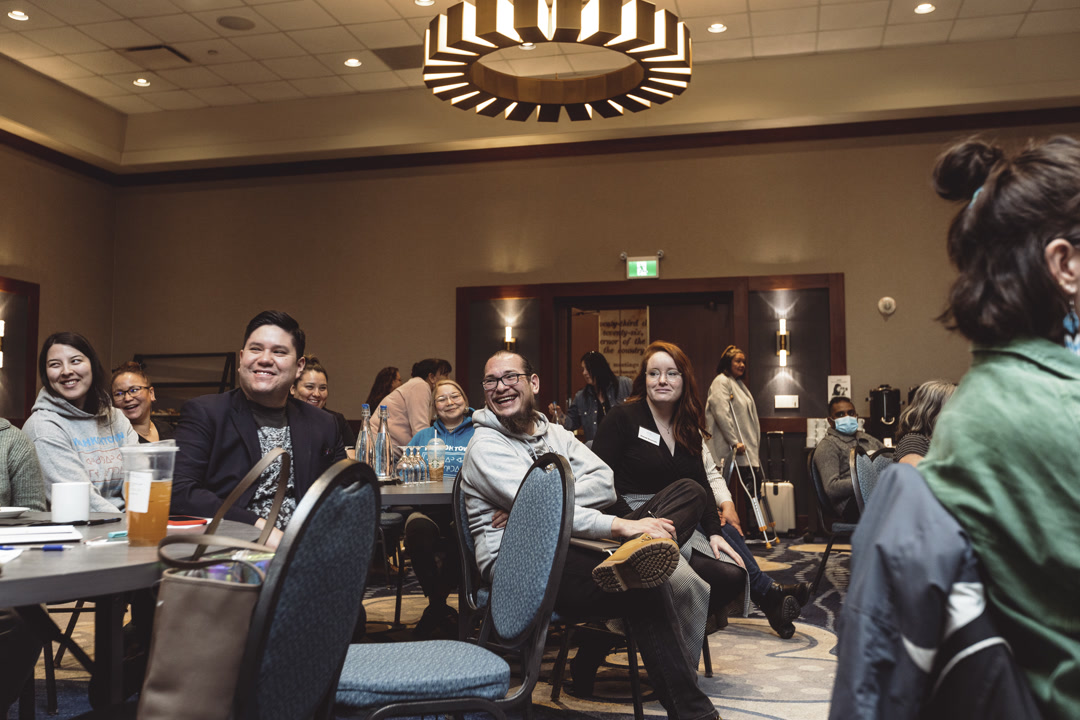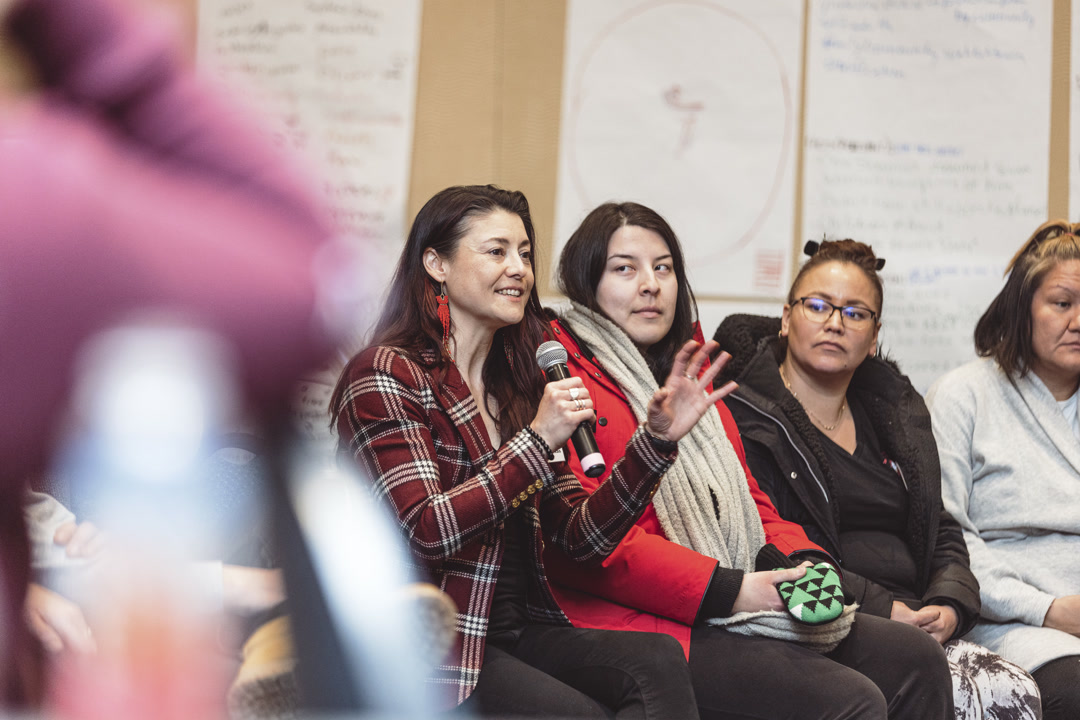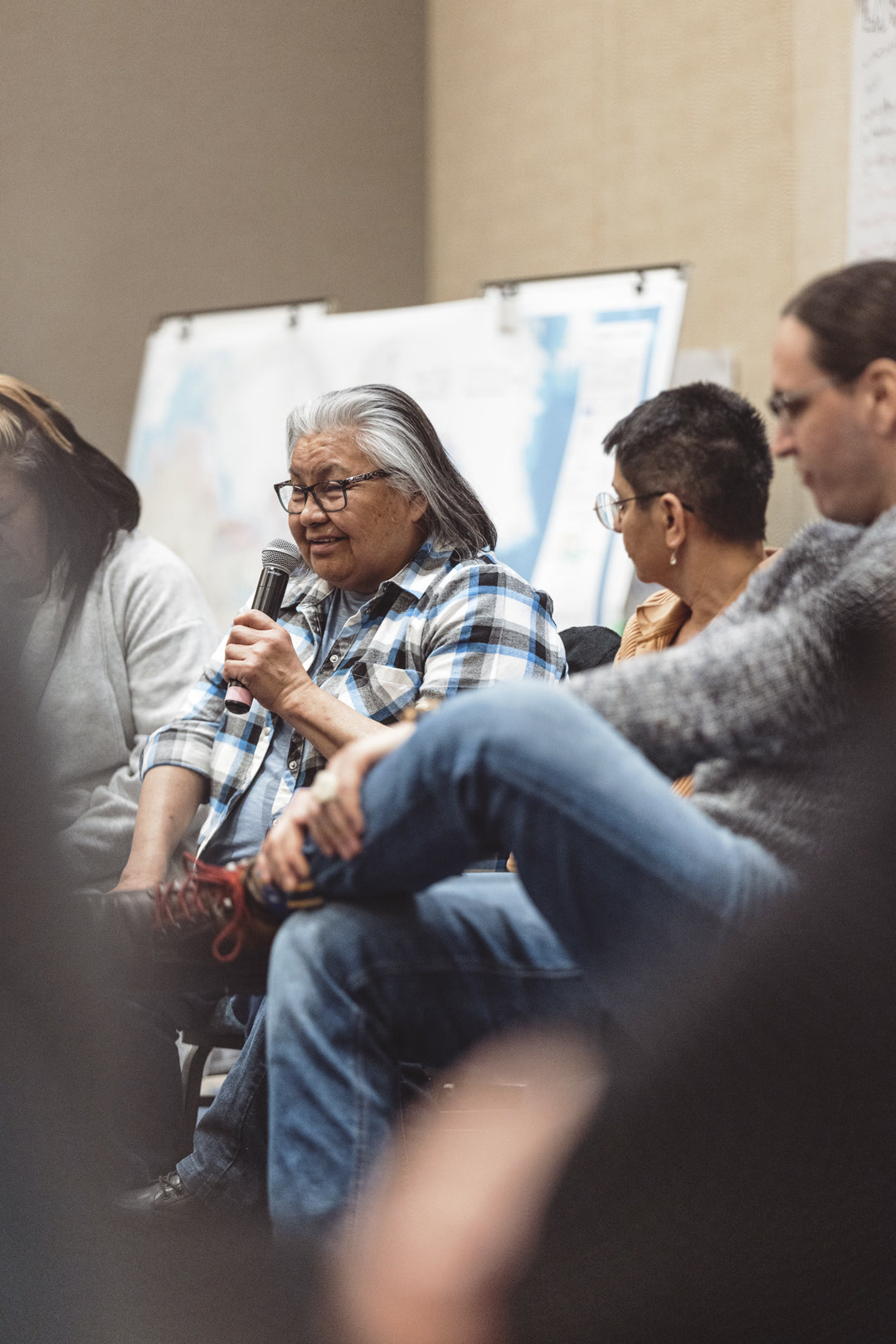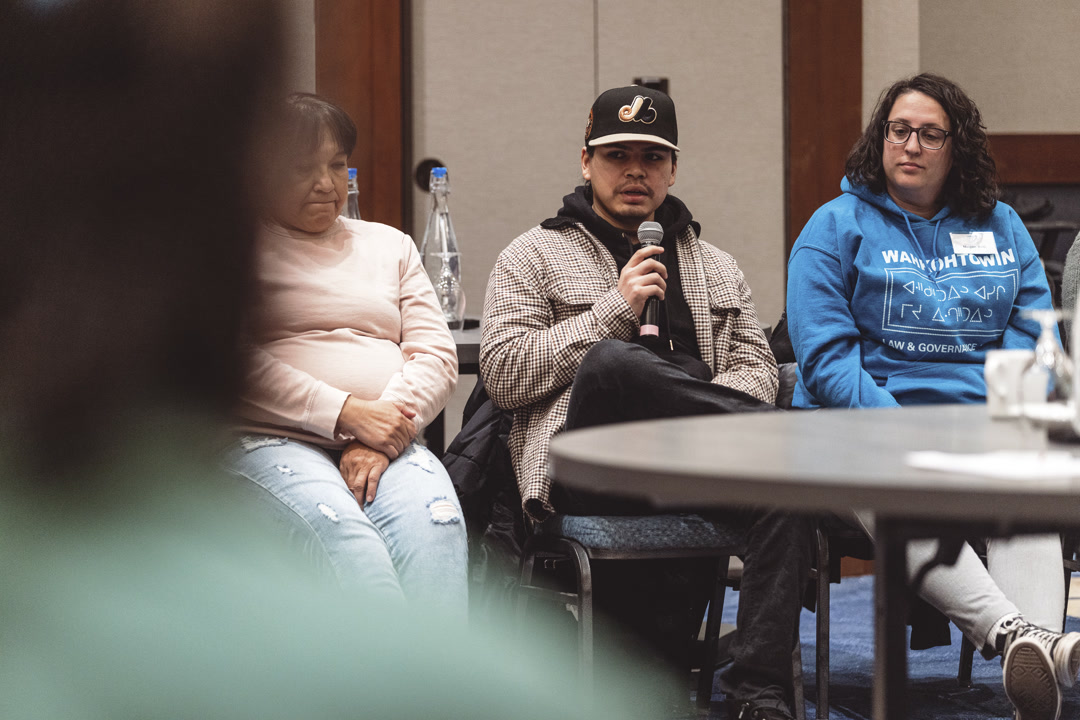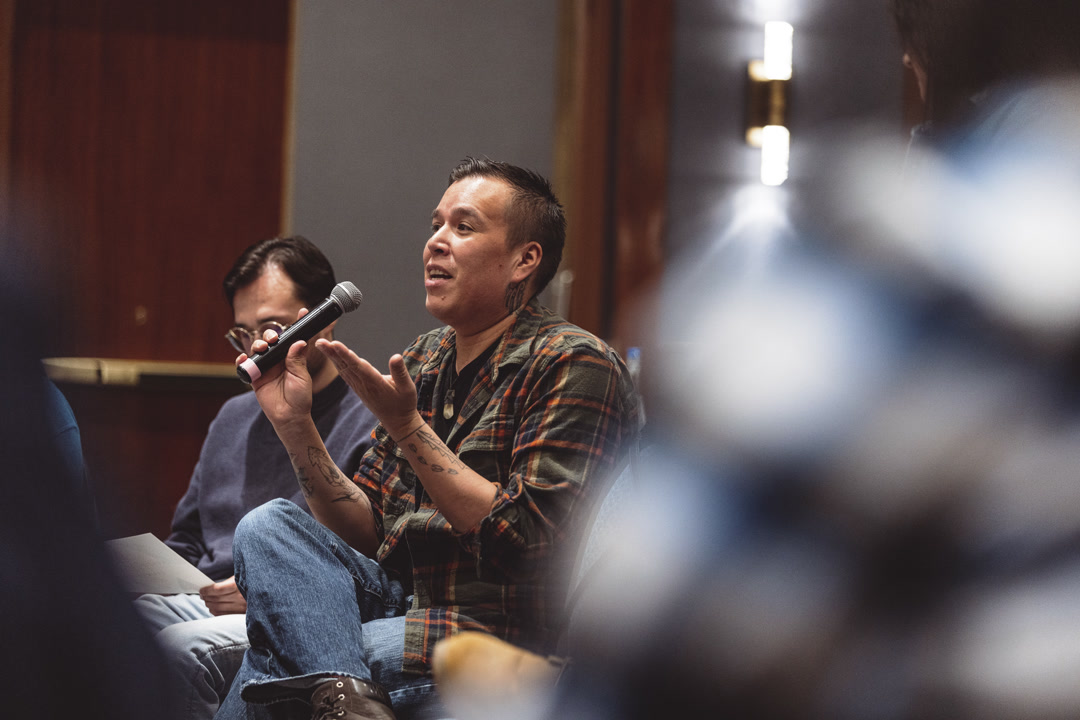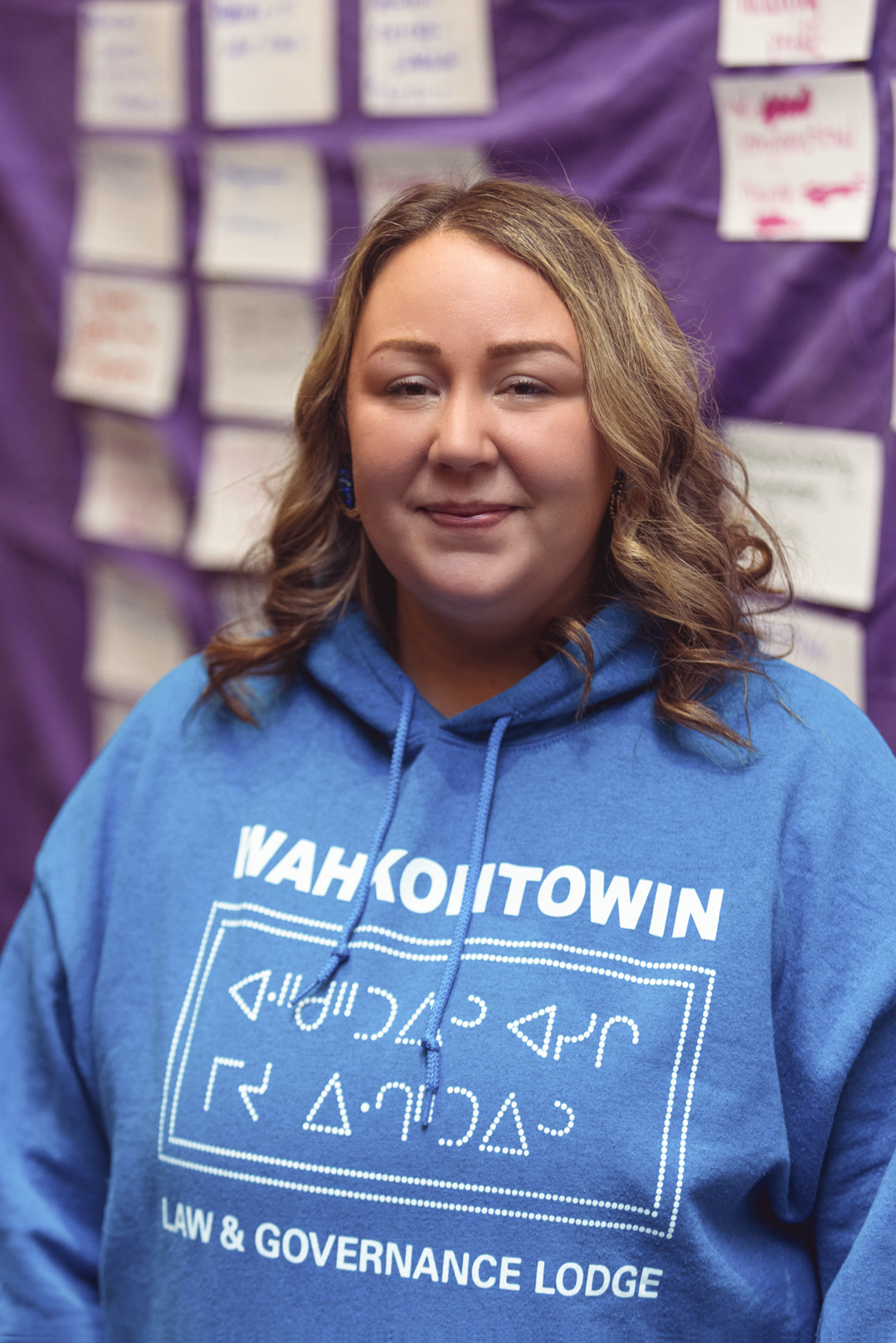A look at the Wahkohtowin Lodge Community Research Methods for Revitalizing Indigenous Laws Workshop
Jyllian Park - 7 March 2023
Frigid temperatures were no deterrent to the many attendees who gathered from across the country to partake in the Wahkohtowin Lodge Community Research Methods for Revitalizing Indigenous Laws Workshop held February 21–24, 2023.
The biannual three-and-a-half-day workshop was put on by the Wahkohtowin Law and Governance Lodge—a dedicated research unit created to uphold Indigenous laws and governance through community-directed research and learning.
“Since it was February and -20°C, I thought we would be lucky to have ten people register,” says Associate Professor Hadley Friedland of the University of Alberta Faculty of Law, the Lodge’s Academic Director who facilitates the workshop alongside Koren Lightning-Earle (Legal Director for the Lodge). “Instead, 46 people from over 25 different Indigenous communities from across Canada came to learn together and from each other.”
The comprehensive and interactive multi-day workshop provided attendees with resources and methods for engaging with Indigenous law, as well as some of the practical challenges people doing this work face.
“Understanding key methods to revitalize Indigenous law is important,” says Lightning-Earle, ‘07 LLB. “By providing people with methodologies of researching and interpreting Indigenous laws, we are helping people figure out what different methods can work for their communities.”
One of the topics covered at this year’s event was the narrative analysis method, an analytical framework co-created by Friedland and Val Napoleon, a Cree law professor currently serving as the Acting Dean at the University of Victoria.
“The narrative analysis method is a method for respectfully engaging with and revitalizing Indigenous law,” says Friedland. “It brings together how we experience stories being used as tools for teaching and direction—and sometimes correction—within Indigenous communities, and methods used in common-law law schools. The idea is to put the same amount of time and rigour into the research of Indigenous law as we expect to do with other legal traditions.”
A common theme amongst attendees was the value provided by the in-person environment that fostered connection and relationship-building.
“The overall feeling was hopeful and connected,” says Friedland. “One person shared that learning these methods and learning together made her feel smart and that she belonged in the legal profession. Sometimes, this work can be discouraging and you can feel really isolated doing this work alone. Our hope is these tools can help people recognize their brilliance and their communities’ brilliance and principled reasoning.”
Lightning-Earle echoed that value in connection. “It is important to make spaces and opportunities to support Indigenous communities and create opportunities to come together. It is important to support the revitalization of Indigenous laws and increase education for non-Indigenous people around Indigenous laws.”
When guests gathered as the workshop came to a close, there was reason again for celebration when it was announced that Casey Caines, ‘23 JD, received her offer from the Supreme Court of Canada to Clerk with Honourable Justice O’Bonsawin.
“We were in the room when that news came,” says Lightning-Earle. “It was announced on Friday and was a great way to end the week. People being able to see themselves in the justice system is an important part of the workshop.”
